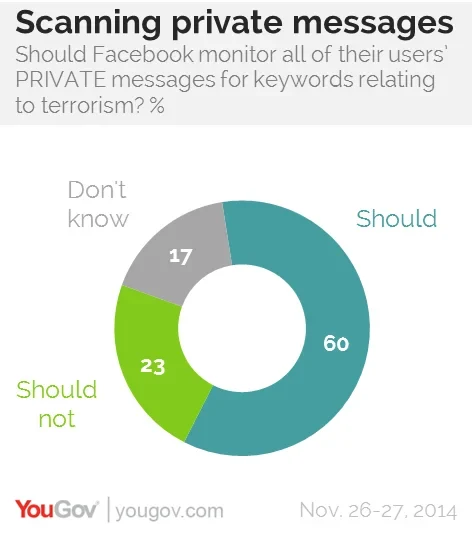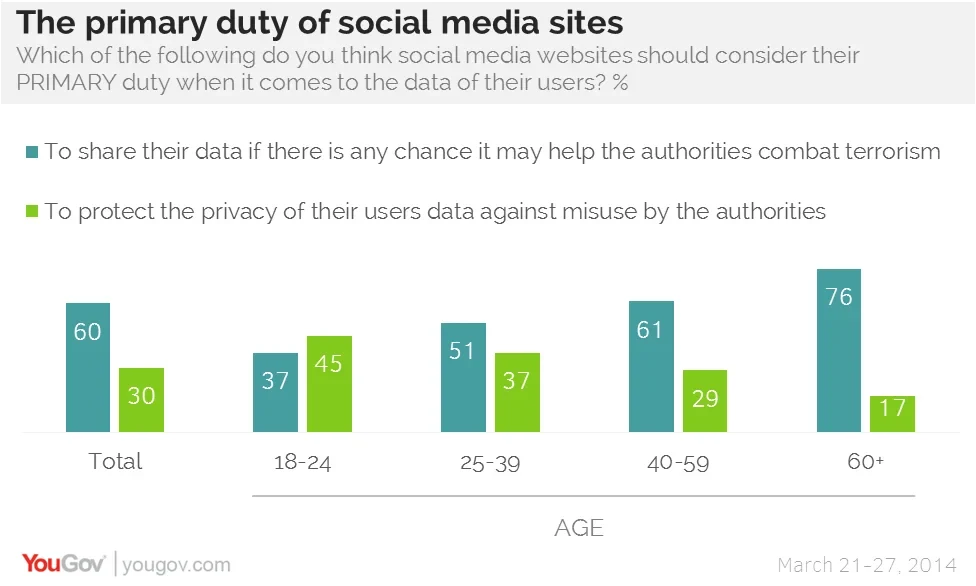Most British people say that Facebook should monitor private messages – and consider it a duty of social media websites to share their data with authorities
Facebook was named this week as the website used by Fusilier Lee Rigby’s killer to communicate his intention to murder a soldier prior to the attack. Michael Adebowale discussed his plans in “the most graphic and emotive manner” on the website, and eight of his social media accounts are said to have been closed down by an algorithm that flags content seen as promoting terrorism. Due to the automated nature of the monitoring, however, the killer’s name was not passed on to the authorities; had it been, there was a "significant possibility that MI5 would have been able to prevent the attack", a report by Parliament’s Intelligence and Security Committee said.
YouGov research has previously found little appetite among British people for reducing the government’s surveillance powers, even after the NSA revelations, and the recent news about Facebook has only bolstered their support for government data collection.

The specifics of Facebook’s security processes are undeclared, but it is known that their algorithms can run through users’ private messages, deploying various techniques to flag up illegal behaviour. 60% of British people say that Facebook should monitor private messages for keywords relating to terrorism; 23% say they should not.
The release of a mass of documents exposing the government’s ability to use data collected by social media companies, by ex-CIA security contractor Edward Snowden, increased pressure on social media companies to protect their users’ privacy. YouGov’s research, however, finds that most British people (60%) see it as the duty of social media sites to share data with the authorities to combat terrorism, more than to protect their users' data against misuse by the authorities (30%).
But there is a significant generational difference in opinions over privacy. 18-24 year olds tend to see social media companies’ primary duty as protecting their data against government misuse, while majorities of every other age group see it as sharing data to combat terrorism. The majority of the younger generation (58%) also say they are more worried about intelligence services being given too much data rather than too little, whereas those aged over 40 tend to be more concerned about them having too little.

On Friday MPs told social networking firms to simplify their terms and conditions, noting that the terms of Facebook’s Messenger app allows it to activate mobile phone cameras to take pictures and videos without alerting users. The committee said reading such documents was like “engaging with Shakespeare”.








